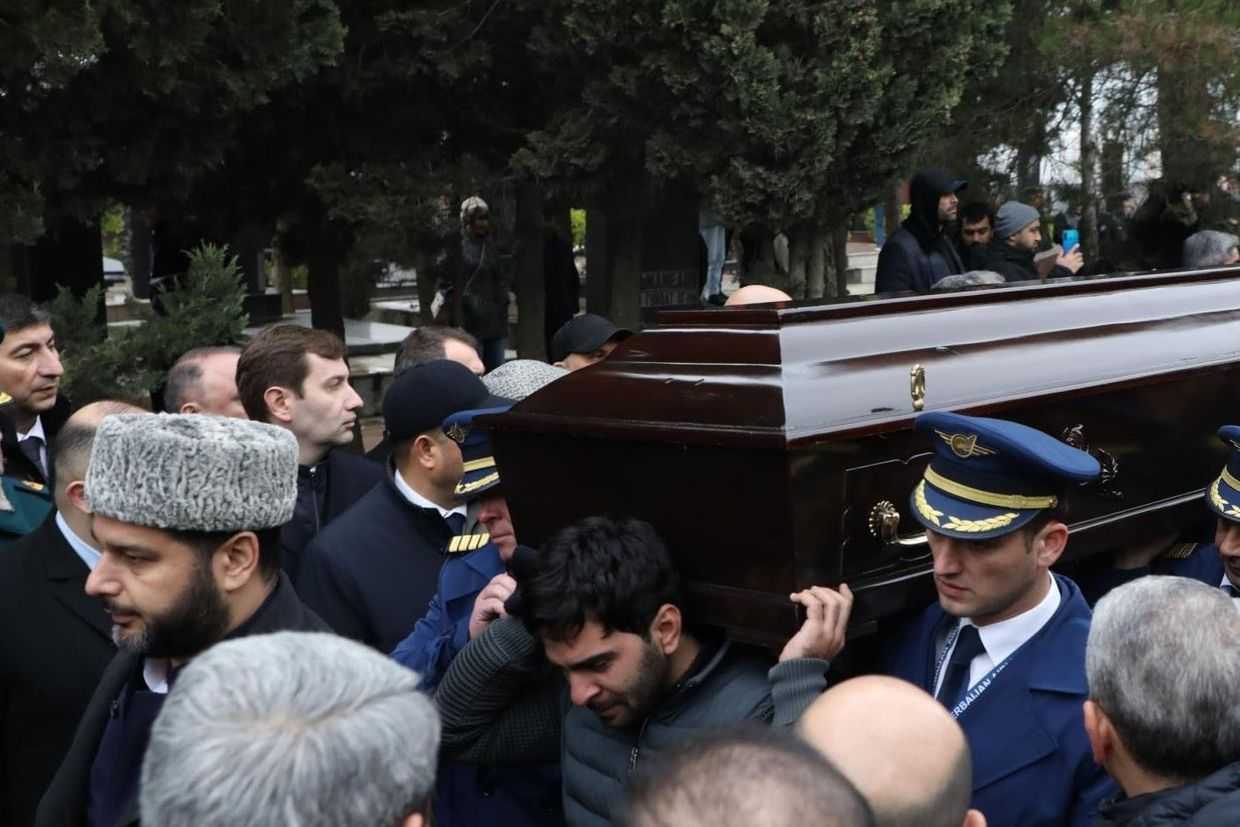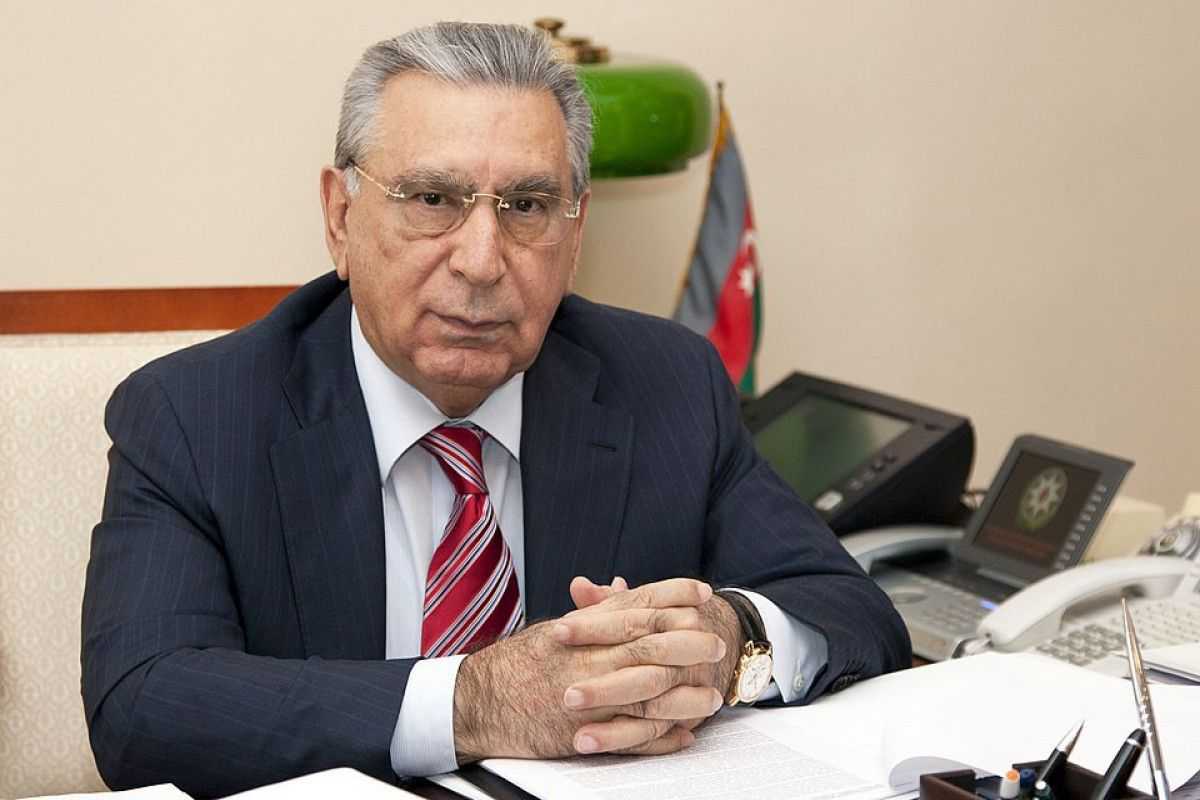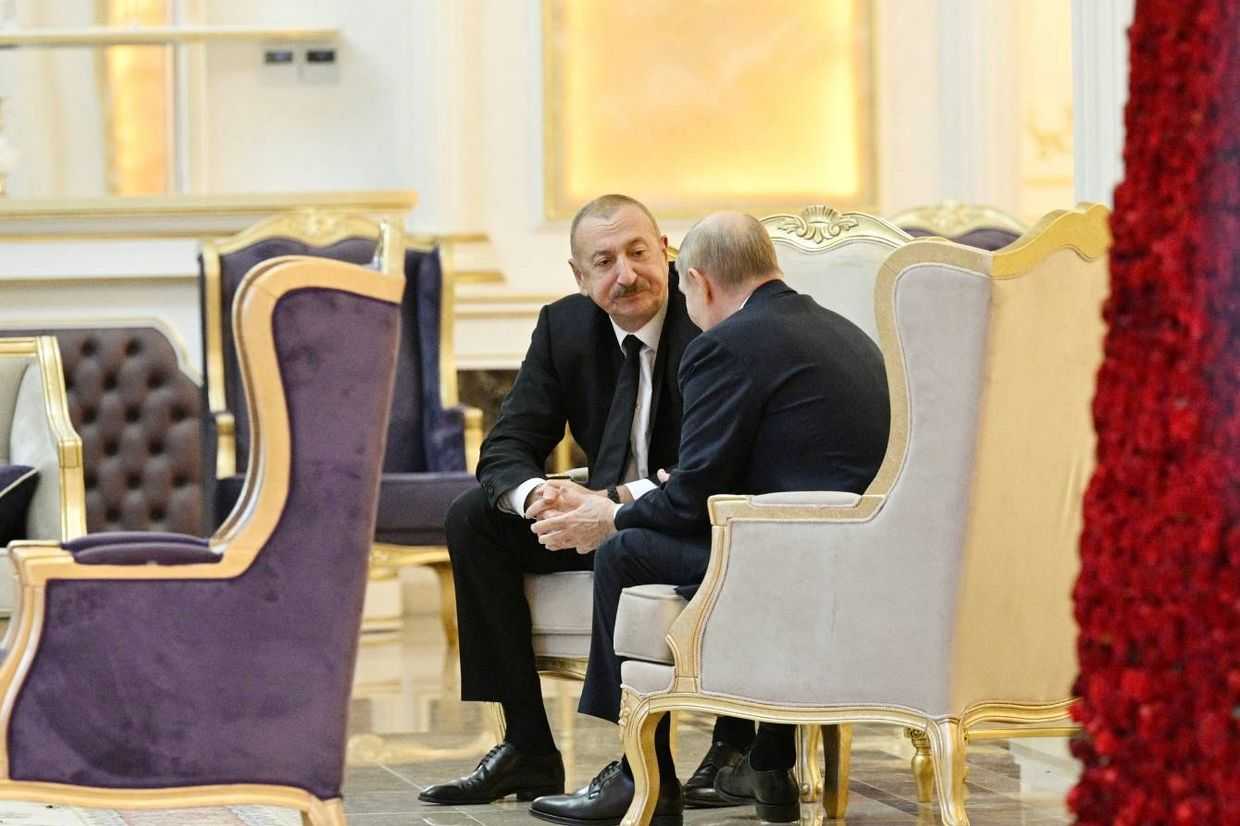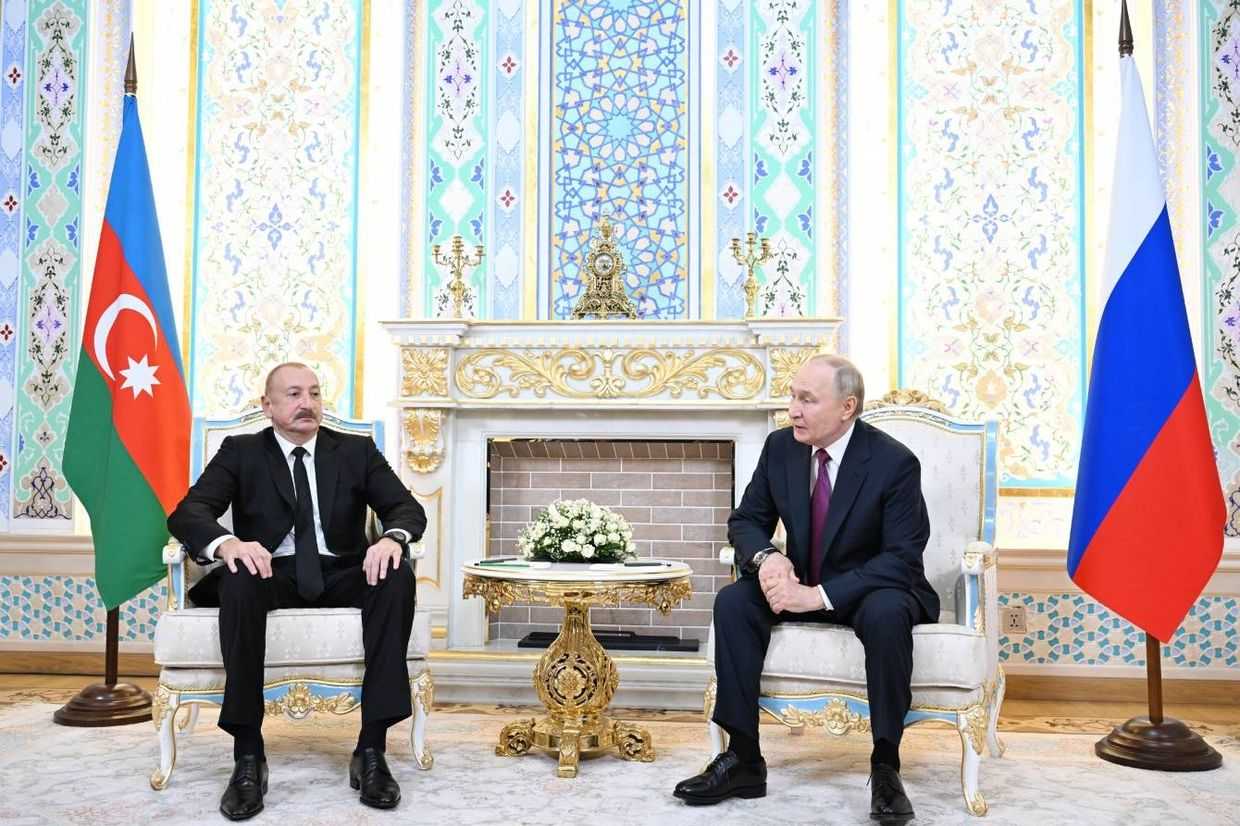
Editor’s note: This article has been updated to include the preliminary conclusions from Azerbaijan’s investigation.
Azerbaijani government sources confirmed to Euronews on Thursday that its preliminary investigation has revealed yesterday’s deadly crash of an Azerbaijan Airlines jet was caused by a Russian air defence missile.
The statement was then shared by the Azerbaijani state-run media outlet APA.
According to the unnamed sources, a missile was fired at the plane as it attempted to land in Grozny, the flight’s original destination. At the time the jet was approaching Grozny, the republic was under a drone attack.
The Azerbaijani news outlet AnewZ, citing government sources, said the missile was fired by a Pantsir-S air defence system.
The missile reportedly exploded near the jet, showering the plane’s body with shrapnel that pierced its hull.
Following the explosion, the plane requested to land at Grozny or other Russian airports nearby, but the requests were denied. Instead, the plane was diverted across the Caspian Sea towards the Kazakh city of Aktau, where it crashed as it attempted to make an emergency landing. The plane’s GPS systems were jammed as it crossed the sea, likely connected to concurrent air defence efforts to respond to the drone attack.
Earlier on Thursday, Kazakh President Kassym Jomart-Tokayev ordered the formation of a commission to investigate Wednesday’s Azerbaijan Airlines plane crash that killed at least 38 people.
The plane’s black box was also located by Kazakh authorities on Wednesday.
Azerbaijan, whose citizens formed the bulk of those killed in the crash, also announced its own criminal investigation into the incident.
Out of the 38 people confirmed to have been killed, 26 were Azerbaijani citizens, seven were Russian nationals, and six were from Kazakhstan.
Three of the five crew members also reportedly survived the crash. The 29 survivors of the crash received injuries of varying severity, with at least 11 in serious condition.
Ahead of Azerbaijan’s accusation, commenters pointed to Russian involvement
Yesterday, Russian officials and the press service of the Grozny airport said the flight had experienced an emergency situation after striking birds while in flight, and due to foggy conditions in Grozny, was rerouted to Aktau, where it was forced to make an emergency landing.
Suspicions about the veracity of the official narrative stemming grew as footage and images of the plane and the crash site spread.
The plane’s fuselage showed damage that appears to be consistent with shrapnel from air defence systems, and videos taken from inside the cabin while en route to Aktau also showed internal damage.
Drones again struck Chechnya on Wednesday, which led to the closure of the Grozny airport, contradicting the official story that the plane was denied access to the airport because of heavy fog.
Andrii Kovalenko, Head of the Centre for Countering Disinformation at the National Security and Defence Council of Ukraine, shared a video on Telegram before the crash was announced purporting to show the drone attack. Alongside the video was the caption, ‘Grozny under attack. [Ramzan] Kadyrov is humiliated again’.
The post was later edited, with the caption changed to ‘Grozny. Unknown drones’.
Chechnya and other republics in the North Caucasus have been targeted by drones with increasing frequency in recent weeks, likely contributing to a heightened alert from air defence systems in the region.
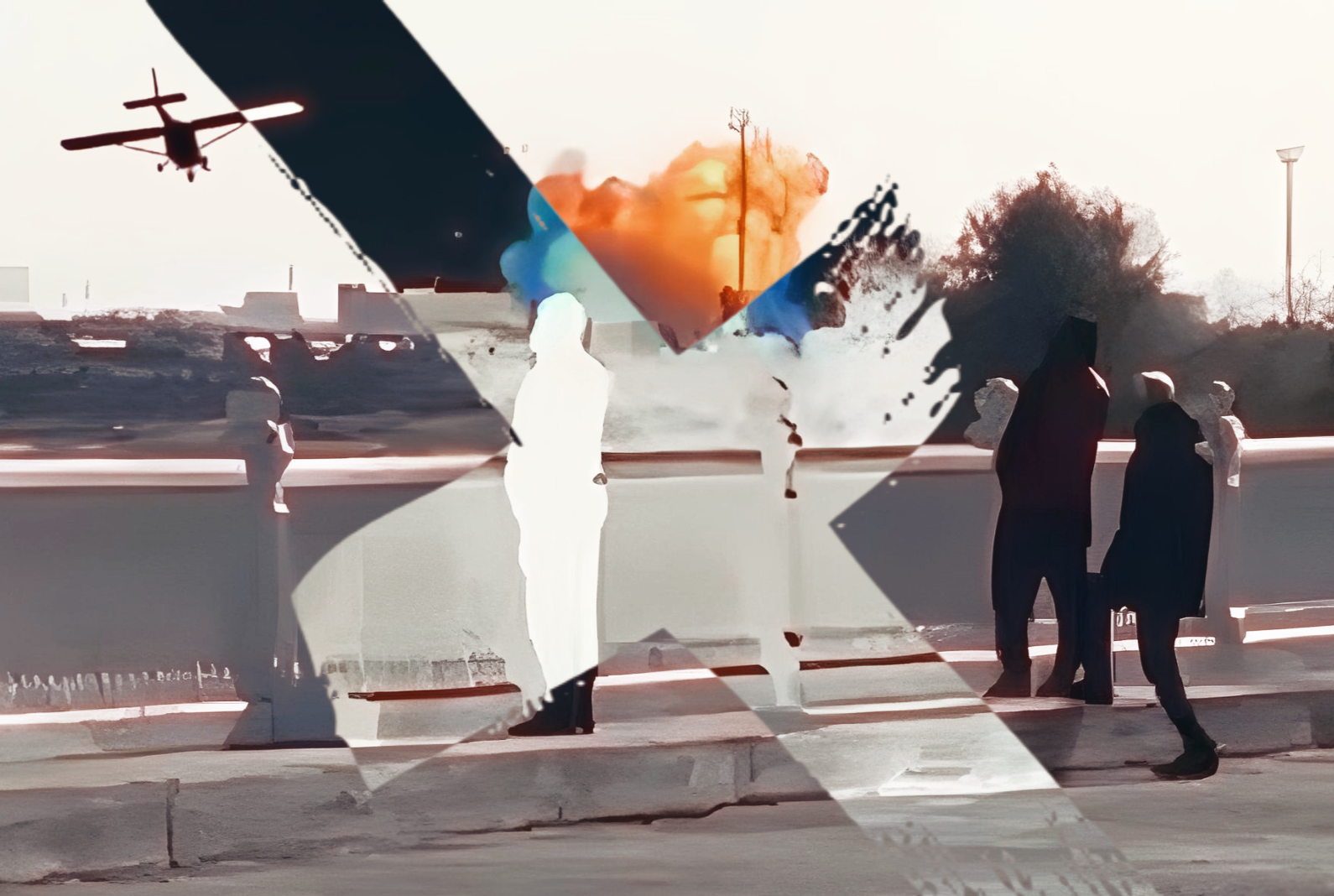
After the crash, Azerbaijan Airlines suspended flights to Grozny and Makhachkala pending the findings of the investigation — a move that would be unlikely if the company believed the plane had struck a flock of birds.
On Wednesday, Ukraine’s Centre for Strategic Communication and Information Security shared footage of the crash site, which clearly showed holes in the plane’s fuselage, saying that it was ‘damage consistent with anti-aircraft fire’.
‘Yet another MH17’, the centre said, referring to the Malaysian Airlines jet that was shot down by Russian-backed forces in eastern Ukraine in 2014, killing all 298 people on board.
Later, the centre shared another post castigating international media for citing explanations from Russian media organisations.
‘Why would the media shamelessly cite the Kremlin’s version of events that are trying to cover-up Russia’s intentional downing of a civilian airliner?’, the centre said.
While Russian state media has largely stuck to the official narrative — the crash was caused by birds — there have been growing signs of dissent from officials connected to the government, as well as high profile Telegram accounts.
Sergei Markov, a former advisor to Russian President Vladimir Putin, claimed that Ukraine was responsible for the crash, suggesting that either a Ukrainian drone had directly struck the plane or that it had been hit by air defence in Chechnya responding to Ukrainian drone strikes in the area.
The Russian state-run media outlet RT shared an interview with one of the survivors of the crash, quoting him saying that there was an explosion outside the plane as it tried to land in Grozny. The man also said that ‘shrapnel’ had pierced the plane.
The influential pro-war blogger Rybar echoed the sentiments, also referencing concurrent drone strikes and saying that the damage to the plane’s fuselage was ‘visually reminiscent’ of shrapnel from air defence.
Before Azerbaijan’s accusation was made public, Kremlin press secretary Dmitry Peskov criticised the spread of theories about what caused the crash.
‘It would be wrong to build any hypotheses before the investigation’s conclusions. And of course, we cannot do this, and no one should do this,’ Peskov said.
The Kremlin has not yet commented on Azerbaijan’s assertion that Russian air defence was responsible for the crash.




